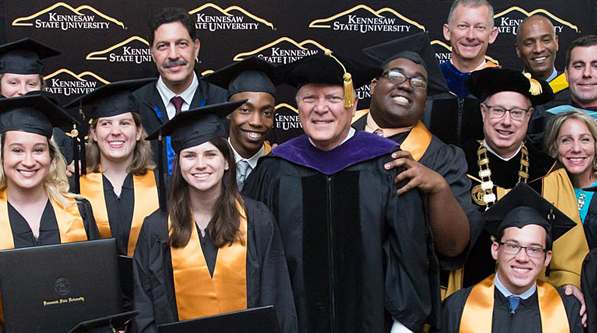Real Learning
 An estimated 3,800 students with disabilities exit school each year, either with a regular education or special education diploma. For a large percentage, the post-school outcomes are not positive. Many are unprepared for post-school activity, such as further education, technical training, or paid employment. Far too many students currently exit schools with these challenges.
An estimated 3,800 students with disabilities exit school each year, either with a regular education or special education diploma. For a large percentage, the post-school outcomes are not positive. Many are unprepared for post-school activity, such as further education, technical training, or paid employment. Far too many students currently exit schools with these challenges.
GCDD Vision
The Department of Education and the Division of Exceptional Students (DES) has formed a state transition team to work on these issues, and within the 10 performance outcomes that the state is working on to improve the outcomes of children with disabilities, three are directly related to transition. In addition, the Georgia Council on Developmental Disabilities (GCDD) and DES has formed and run a Statewide Transition Steering Committee that has been meeting on a quarterly basis for three years. This group has been very productive in considering related policy that affects the transitioning student. In addition, there are activities in the State’s Transition Action Plan on which the Statewide Transition Steering Committee has agreed to work.
Most of the groups considering better transition outcomes for students agree that several components are involved.
First, students in high school need constructive transition planning. Planning needs to start prior to the beginning of High School, if students have hopes of completing successfully.
Second, high schools students need to learn the skills needed to be actively engaged in their own planning, to express their wishes, problem solve and self-advocate.
Third, the state’s graduation policies need to accommodate students who cannot complete high schools by traditional routes.
Fourth, members of the teaching and administrative professions could benefit by better and more frequent interaction with the disability community network so they can share ideas, challenges and solutions in an effort to move forward together.
Finally, parents of students with special needs need to be supported in their efforts to advocate for their children, to share information with each other and to learn how to navigate the systems that serve their children.
Therefore, the priority is stated as, “A Georgia where high school students with disabilities experience effective transition planning that includes the practice of self-determination, alternative diploma routes, professional collaboration and positive parent support that leads to better post-school outcomes.”
The Developmental Disabilities Bill of Rights and Assistance Act defines education as: Students with developmental disabilities are able to access the appropriate supports and modifications when necessary, to maximize their educational potential, to benefit from life-long educational activities, and to be integrated and included in all facets of student life
GCDD Supported Efforts
Inclusive Post-Secondary Education (IPSE) – Inclusive post-secondary education (IPSE) programs provide opportunities for study beyond high school to students who historically have not been presented with these possibilities. These programs change lives by making college accessible for students with intellectual and developmental disabilities. Further, this education prepares them to live increasingly independent lives, pursue careers of their choice and provides the potential for increased earnings long-term. Click here for the current programs available in the State of Georgia: https://gcdd.org/our-mission/our-supported-programs/105-general-content/3056-inclusive-post-secondary-education-ipse.html
GCDD is the legislative lead for the Georgia Inclusive Postsecondary Education Consortium (GAIPSEC). The Georgia Inclusive Postsecondary Education Consortium (GAIPSEC) seeks to create opportunities for students who have historically not had access to post-secondary educational opportunities. The consortium works with members of diverse communities to help higher education institutions implement programs that extend the dream of higher education to young people with intellectual and developmental disabilities.Gwinnett SToPP: Gwinnett SToPP is a parent-driven, community-centered partnership approach to dismantling the school to prison pipeline in Gwinnett County. The mission of Gwinnett SToPP is to build and strengthen relationships with the community in two constructive ways – parent/community advocacy training and policy-change facilitation. They are online at https://www.gwinnettstopp.org/
Seclusion and Restraints in Schools: How Safe is the Schoolhouse? An Analysis of State Seclusion and Restraint Laws and Policies Author: Jessica Butler;
Other Partners and Resources
Department of Education (www.gadoe.orgs)
Georgia Vocational Rehabilitation Agency (https://gvs.georgia.gov/)
Georgia Advocacy Office (thegao.org)
Parent to Parent of Georgia (p2pga.org)
Parent Mentors (www.parentmentors.org)
PTA (www.pta.org)
View Our Real Learning Resources
